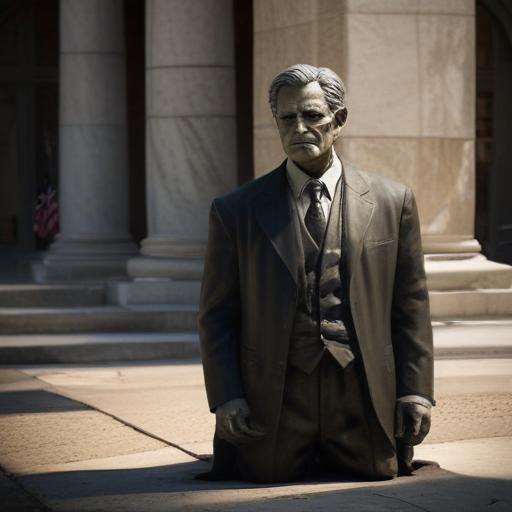Michael J. Madigan, once a dominant figure in Illinois politics, has been sentenced to 7.5 years in prison along with a $2.5 million fine for his involvement in a public corruption scheme. U.S. District Judge John Blakey delivered this harsh sentence during a hearing where he strongly criticized Madigan for lying under oath. Blakey remarked, “To put it bluntly, it was a nauseating display,” and emphasized that Madigan took the law into his own hands by choosing to testify while facing corruption charges.
During his testimony, which the judge described as filled with dishonesty, Madigan denied various accusations, including his association with known fixer Michael McClain and a scheme involving Commonwealth Edison (ComEd), where utility payments were tied to favorable legislative treatment from Madigan. The judge underscored that Madigan’s own words during the trial contributed significantly to his downfall and led to the judge’s decision to impose a longer sentence than other prominent corruption cases in Illinois.
The judge noted that Madigan, at 83, might not be released until he is nearly 90 years old, yet Madigan’s legal team expressed intentions to appeal the conviction. On leaving the courthouse, Madigan maintained a seemingly defiant demeanor, smiling as he passed reporters, despite the gravity of his situation.
The implications of this case are considerable, shedding light on a history of political corruption in Illinois. This high-profile sentencing sends a clear message about accountability in public office. Interim U.S. Attorney Andrew Boutros stated, “Corruption at the highest level of the state legislature tears at the fabric of a vital governing body,” emphasizing the necessity of maintaining integrity in public service.
Interestingly, the case also reflects a wider narrative concerning the influence of longstanding political figures. Madigan’s lengthy career, marked by a significant grip on the Illinois House, contrasts sharply with the need for renewed integrity and transparency in politics.
Now that he faces a long prison sentence, the focus shifts to the future of public service in the state and whether such actions will prove to be a deterrent against corruption for other officials. Despite the challenges ahead, there is hope that this outcome can lead to a renewed commitment to ethical leadership among current and future political leaders.
